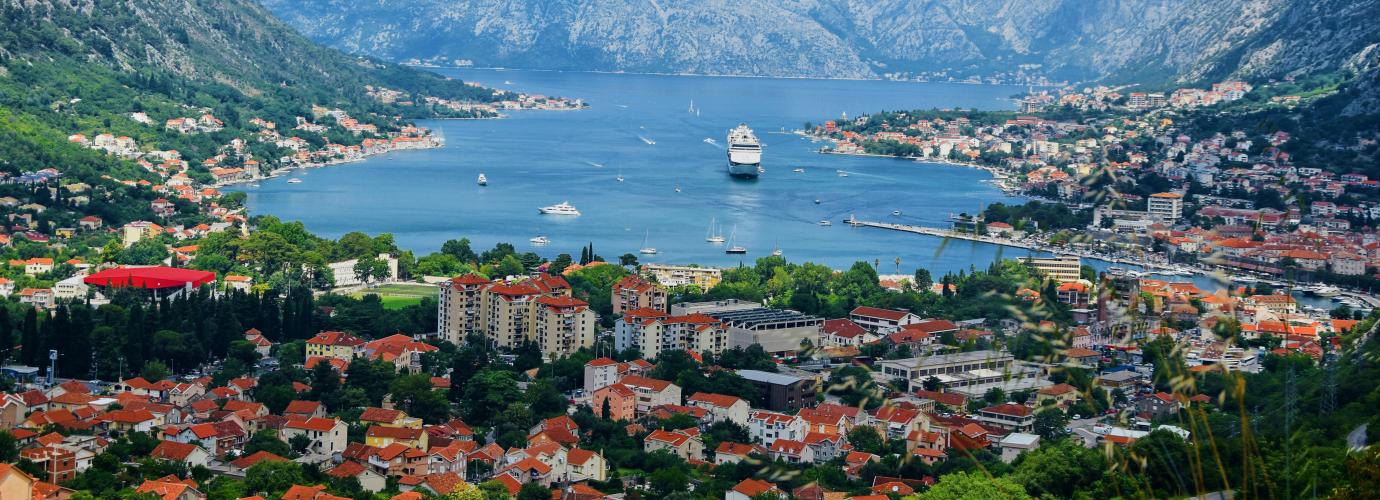European, global and intercultural dimension in curriculum development
The level of higher education internationalisation can be regarded externally and internally - the external component relates to mobility, partnership and promotion, whereas the internal component relates to adaptation of curricula, foreign language teaching, joint degree programmes, internationally recognised learning outcomes and internationalisation of campuses.
The strategic objective of higher education development in Montenegro is to harmonise the system with the European tendencies in the field of higher education which are based on the Bologna Declaration and the Lisbon Convention principles. The application of these principles, among other things, led to the introduction of ECTS - European Credit Transfer System, “diploma supplement” as an accompanying document describing the programme completed, “joint degree” issued by two or more institutions, promotion of European cooperation in quality assurance, and defining the procedure for the recognition of previously acquired knowledge, qualifications and degrees in accordance with the Lisbon Convention.
The Strategy for the Development of Higher Education in Montenegro 2024-2027 states that internationalization is recognized as a priority of all institutions of higher education in a long period of time, but the indicators of success for all the unknown processes of internationalization are still limited. It was assessed that additional involvement of institutions, support of competent departments and better comprehensive promotion of the possibility of connection and cooperation are necessary. The immediate goals envisaged:
• Increasing incoming and outgoing student mobility and academic staff mobility.
• Promotion of Montenegrin institutions in the European area of higher education.
• Strengthening of the National Office for the Promotion of Mobility and International Cooperation of Higher Education Institutions of education.
It should be emphasized, as a very important step in joint work and international cooperation, the creation of dual or joint projects of doctoral dissertations (Joint PhD) which are defined on the basis of the Agreement on a double doctorate between two universities signed by, in addition to the student, mentors from both sides, and heads of doctoral schools, i.e. the committee for doctoral studies and university rectors. Educational requirements are also defined within the agreement, i.e. subjects to be passed by the student. Each such doctorate is a kind of international scientific project and its realization is a confirmation of successful international cooperation.
The process of referencing the National Qualifications Framework with the European Qualifications Framework for Lifelong Learning and the Qualifications Framework in the European Higher Education Area was completed in November 2014. This resulted in more transparent learning outcomes that define the qualifications and their greater international comparability.
At the level of the Western Balkans region, activities related to mutual recognition of academic qualifications, and the preparation and signing of agreements on mutual recognition of the so-called regulated professions for the Western Balkan countries are conducted under the auspices of the Regional Cooperation Council (RCC) and the Education Reform Initiative in South East Europe (ERISEE). The Working Group for the Recognition of Academic Qualifications was established in December 2017, consisting of representatives of the relevant ministries, ENIC/NARIC offices and quality assurance agencies. Agreements on mutual recognition of professional qualifications for Doctors of Medicine, Dentists, Architects and Civil Engineers are expected to be signed in 2019.
Partnerships and networks
Montenegro participates in certain parts of the Erasmus + programme as Partner Country. The National Erasmus + Office in Montenegro is responsible for promotion and implementation of the Erasmus + programme in Montenegro in the field of education. Institutions from Montenegro can take part in certain types of projects in each of the three Key Actions of the Erasmus + programme, as well as in Jean Monnet and Sport parts. The largest number of opportunities is for mobility and higher education projects, and within the Key Action 3 we take part in the following networks: Eurydice, Europass and Euroguidance (a special Career Guidance and Counselling Office has been established for the latter two networks), and EPALE (Electronic Platform for Adult Learning in Europe).

